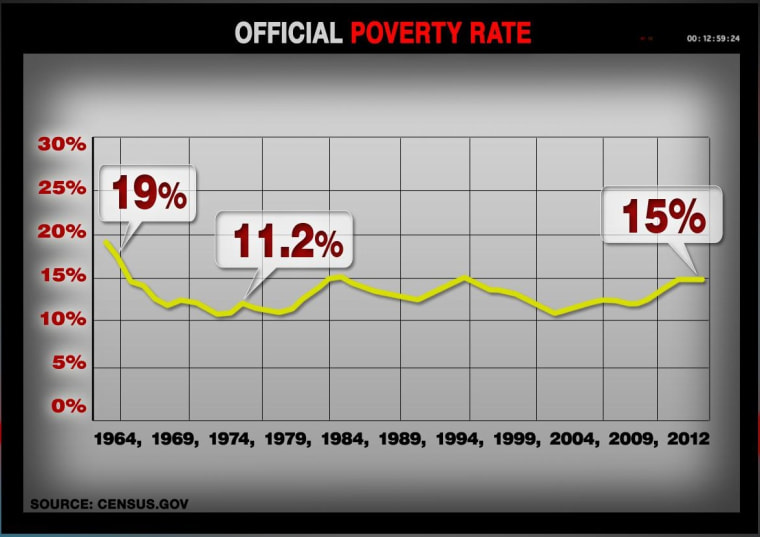Just weeks after taking office, President Lyndon Johnson declared war on poverty – a war that still rages fifty years later. And while Johnson himself helped the situation by creating Medicare and Medicaid as well as dozens of jobs programs, millions of Americans still struggle to get by.
The rate of Americans below the poverty line has fallen since 1964, from 19% to 15%, but the ranks of the poor in raw numbers has actually grown. In 2012, census numbers showed more than 46 million people in poverty, including 1 out of every 5 children, 1 in 4 African-Americans and Hispanics and nearly 1 in 3 single mothers.
President Obama has pledged to make closing the gap between the rich and poor a key part of his 2014 agenda, but Demos distinguished senior fellow Bob Herbert told Chuck Todd he’s not optimistic anything will get done in this political climate. “No one is willing to talk about redistribution of wealth and income and you cannot make a serious dent in poverty without distribution, without taking something from the haves and moving it toward the have-nots.”
While Democrats are promising to build on LBJ's legacy, Republicans are questioning whether the war is being waged effectively. Some, like Congressman Paul Ryan, have complained that trillions of government assistance money has simply been thrown at the problem without significantly impacting poverty in America. In fact, federal expenditures for the social safety net in 2012 ($1.97 trillion) were roughly 50 times what they were in 1965.
While there have been successes, including slashing the number of elderly Americans in poverty, the rate has grown for nearly every other sector. From 1966 to 2012, poverty rates have risen among whites, families, kids and adults between 18 and 65. The poverty rate among African-Americans has fallen 14 percentage points, but it started at a staggering 41.8% in 1966. “It’s not just that there are so many people at or below the poverty line," said Mr. Herbert. "There’s a tremendous number of people just a notch above the poverty line." He estimated the total number of low income Americans may amount to a third of the population, approximately 100 million people.
